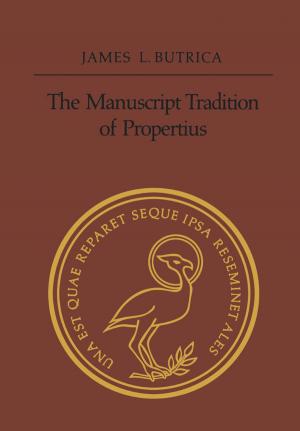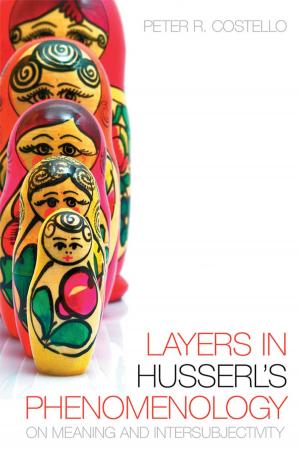Daniel Defoe, Contrarian
Fiction & Literature, Literary Theory & Criticism, Gothic & Romantic, British| Author: | Robert James Merrett | ISBN: | 9781442664500 |
| Publisher: | University of Toronto Press, Scholarly Publishing Division | Publication: | March 22, 2013 |
| Imprint: | Language: | English |
| Author: | Robert James Merrett |
| ISBN: | 9781442664500 |
| Publisher: | University of Toronto Press, Scholarly Publishing Division |
| Publication: | March 22, 2013 |
| Imprint: | |
| Language: | English |
A highly conscious wordsmith, Daniel Defoe used expository styles in his fiction and non-fiction that reflected his ability to perceive material and intellectual phenomena from opposing, but not contradictory perspectives. Moreover, the boundaries of genre within his wide-ranging oeuvre can prove highly fluid. In this study, Robert James Merrett approaches Defoe’s body of work using interdisciplinary methods that recognize dialectic in his verbal creativity and cognitive awareness.
Examining more than ninety of Defoe’s works, Merrett contends that this author’s literariness exploits a conscious dialogue that fosters the reciprocity of traditional and progressive authorial procedures. Along the way, he discusses Defoe’s lexical and semantic sensibility, his rhetorical and aesthetic theories, his contrarian theology, and more. Merrett proposes that Defoe’s contrarian outlook celebrates a view of consciousness that acknowledges the brain’s bipartite structure, and in so doing illustrates how cognitive science may be applied to further explorations of narrative art.
A highly conscious wordsmith, Daniel Defoe used expository styles in his fiction and non-fiction that reflected his ability to perceive material and intellectual phenomena from opposing, but not contradictory perspectives. Moreover, the boundaries of genre within his wide-ranging oeuvre can prove highly fluid. In this study, Robert James Merrett approaches Defoe’s body of work using interdisciplinary methods that recognize dialectic in his verbal creativity and cognitive awareness.
Examining more than ninety of Defoe’s works, Merrett contends that this author’s literariness exploits a conscious dialogue that fosters the reciprocity of traditional and progressive authorial procedures. Along the way, he discusses Defoe’s lexical and semantic sensibility, his rhetorical and aesthetic theories, his contrarian theology, and more. Merrett proposes that Defoe’s contrarian outlook celebrates a view of consciousness that acknowledges the brain’s bipartite structure, and in so doing illustrates how cognitive science may be applied to further explorations of narrative art.















